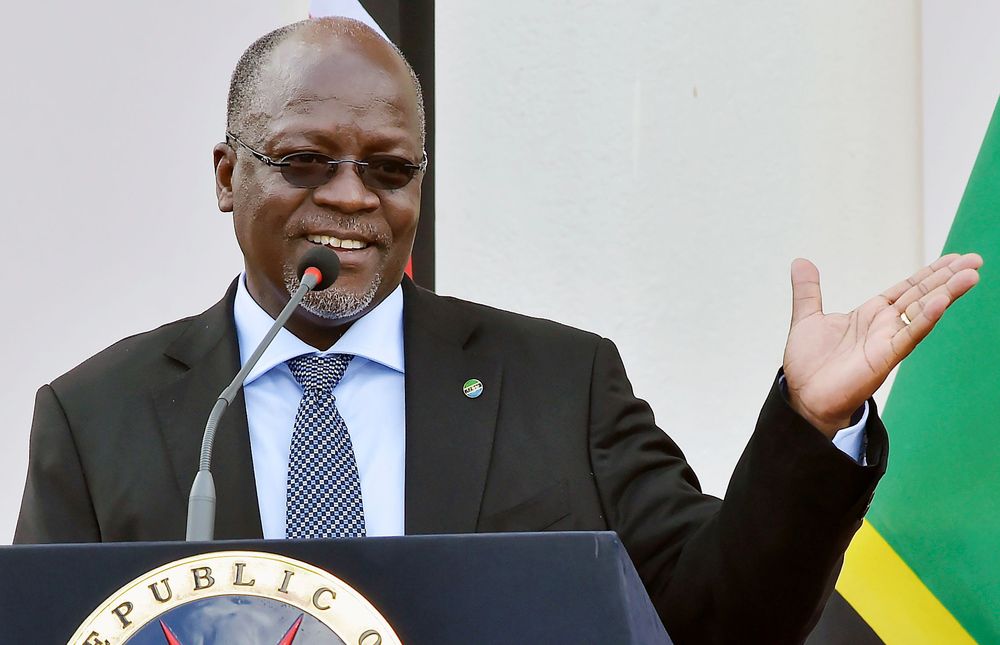
John Magufuli Photographer: Simon Maina/AFP via Getty Images
Tanzanian president John Magufuli split the energy and minerals ministry in two and appointed heads for the new ministries on Saturday, five months after sacking the previous minister.
Two presidential committees had recommended the move to tighten supervision of natural resources in Tanzania, where Magufuli has sent shockwaves through the mining community since his election in 2015 with actions he says are aimed at ensuring that the African country benefits from its natural wealth.
The country passed new laws in July to increase mining taxes, to force companies to re-negotiate their contracts and to allow the state to own up to 50 percent of mining firms.
Nicknamed “the Bulldozer” for his forceful leadership style, Magufuli is increasing pressure on miners, including Acacia Mining, the biggest gold miner in Tanzania, to pay more taxes.
Magufuli fired Sospeter Muhongo in May after an investigation into possible undeclared exports by mining companies. Several senior officials resigned or were fired after allegations of impropriety in Tanzania’s mining sector.
The president appointed Angellah Kairuki as the new mining minister. The 41-year-old lawyer by training previously served as minister of state in the president’s office responsible for public service management and good governance.
Medard Kalemani, 41, was promoted from deputy energy and minerals minister to lead the new energy ministry. He has worked for the ministry for more than a decade, previously as its legal affairs director.
The president also split the Ministry of Agriculture, Livestock and Fisheries. Charles Tizeba will take over Agriculture and Luhaga Mpina will head the Ministry of Livestock and Fisheries, promoted from deputy at the Ministry of Environment and Union Affairs. Deputy Health Minister Hamisi Kigwangalla was promoted to lead the Ministry of Natural Resources and Tourism, replacing Jumanne Maghembe.
Magufuli is overhauling the mining industry in sub-Saharan Africa’s sixth-biggest economy, with a target to double its contribution to gross domestic product to 10 percent by 2025.
In March, he banned mineral exports and ordered an audit that found London-based Acacia Mining Plc understated the taxes it owes Tanzania, a finding the company disputes.
Petra Diamonds Ltd. halted production at its mine in Tanzania in September after the government seized a shipment of diamonds suspected of being undervalued. The company has resumed operations and won authorization to export its diamonds late last month. The government in July approved laws that would enable the state to renegotiate contracts with mining and energy companies.
Editing by Maggie Fick and Alexander Smith

